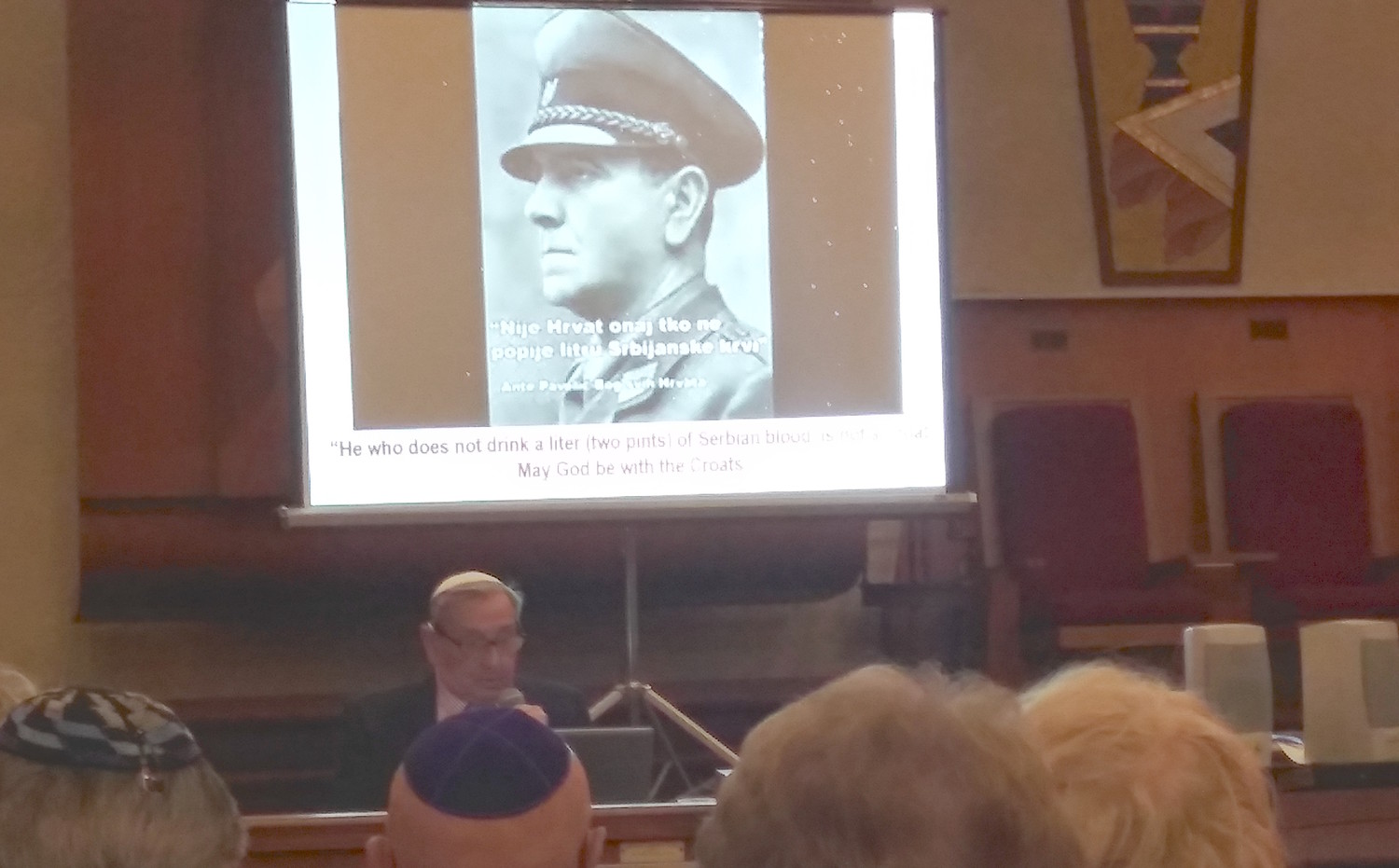In Baldwin, survivor recalls past to face future
For Werner Reich, the tragedy began in 1933, five years before Kristallnacht, when his father was stripped of his job and he was banned from going to school. “When Jews were deprived of livelihood, safety and school, that’s when my Holocaust started,” Reich, of Smithtown, said at the South Baldwin Jewish Center on Nov. 11.
The Berlin native has spoken all over the world about surviving the Shoah and the persecution Jews faced in the years leading up to it. He said he will return to Germany at the end of this week, a trip he said is important to him even though he is not looking forward to it.
“I don’t want to die with hate in me,” he said.
Within his first six months of power, Hitler implemented laws that stripped Jews of their way of life and a boycott of Jewish businesses ensued that ended in the suicide of 300 Jews. Reich’s family left Berlin for Yugoslovia, where they thought they would be safe.
At the start of the Holocaust, Reich’s mother (their father died in 1940) placed him and his sister with separate families. He was safe for some time, but was caught and arrested by the Gestapo. An officer beat him during questioning. “He did that for a couple of hours,” Reich said.
He was eventually sent to a prison in Austria, where one day he looked out the window and saw his mother with a group of women — the last time he saw her. “I don’t know what happened to her,” he said. “I’m not interested in knowing what happened to her because I do not want to picture that.”
Reich was sent to numerous camps, eventually to Auschwitz. Some who were sent to Auschwitz were immediately killed, but others were kept for weeks before sent to gas chambers. “I still hear their crying, and screams and begging because they knew what was going to happen,” he said.
He and the other prisoners were fed roughly 400 calories a day, the equivalent of two pieces of white bread with butter. It wasn’t until late December 1944, when he was transferred to Mauthausen in Austria, that he had something warm to drink — the water that fell off a train wheel.
“It was the best thing I had in my entire life,” he said. “I don’t think I will ever forget that.” Mauthausen was liberated in May 1945. Those who were still alive were fed military rations by US troops.
Just as the Holocaust didn’t begin with Kristallnacht, it did not end with Victory in Europe Day. Jews who survived the Shoah were persecuted in their home countries, some dying upon return.
Asked if he sees similarities between attacks on Jews in Europe and hate crimes committed in the United States today, Reich said no. The biggest difference, he said, is that people in Germany did not speak up against the government’s actions, whereas people in America do. “I have great faith in Americans and I have great faith in America,” he said.
Royi Shaffin, spiritual leader of the SBJC, said it was important to hear Reich’s speech. “It is so important to remember the past as we face the future,” he said.

 45.0°,
Mostly Cloudy
45.0°,
Mostly Cloudy 




